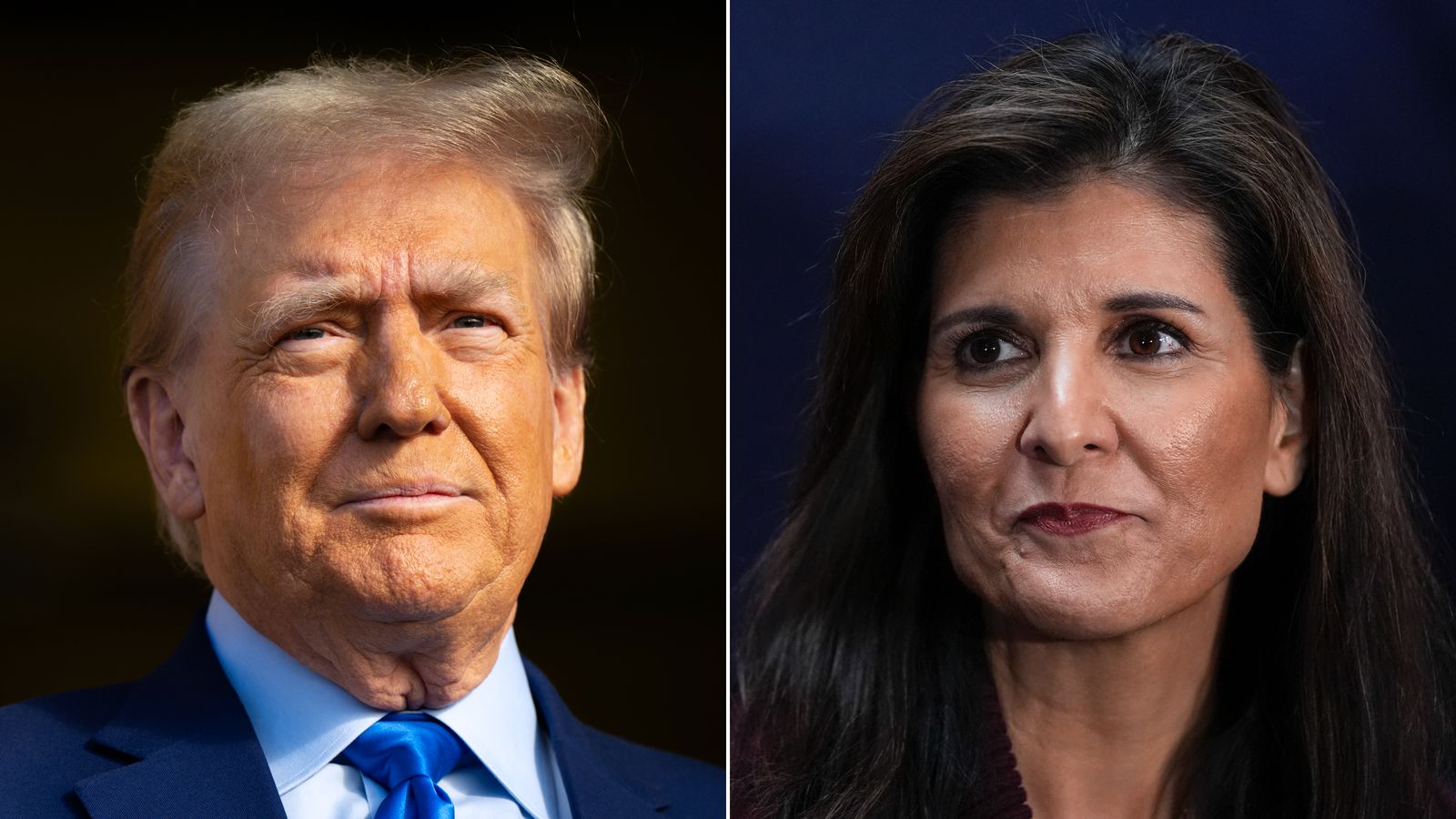Former South Carolina Governor Nikki Haley took to the stage on Sunday night, her jubilation reverberating through the crowd. “Can you hear that sound?” she asked. “That’s the sound of a two-person race.” Haley’s long-awaited one-on-one clash with former President Donald Trump for the Republican nomination was finally a reality. However, the real challenge lies ahead: proving she can sustain this duel beyond Tuesday’s New Hampshire primary and the sudden withdrawal of Florida Governor Ron DeSantis from the race.
Trump’s critics have long theorized that a one-on-one fight for the Republican nomination against a candidate who unites the party’s opposition would lead to his defeat. This theory is about to face its ultimate test. Haley’s best chance lies in New Hampshire, where moderate and independent voters play a crucial role. A victory or a close runner-up spot will be vital for Haley’s capacity to run through her home state’s primary next month and into the Super Tuesday major-state primaries at the beginning of March.
However, Haley’s campaign faces a critical question: Is the ex-president, who remains popular among GOP base voters, simply too strong for anyone in the party to beat him? The consolidation of the Republican pack seems to be around Trump, not Haley, as three of his defeated rivals – DeSantis, South Carolina Senator Tim Scott, and entrepreneur Vivek Ramaswamy – have endorsed him in the last week.
The chief proponent of the idea that a head-to-head contest could imperil Trump and open the way for a prolonged duel for delegates has been New Hampshire Governor Chris Sununu. The popular Republican seemed ecstatic that his preferred scenario had come true as he rallied for Haley in Exeter on Sunday night.
Despite the challenges, Haley has tried to capitalize on her new status, presenting herself as the antidote to Trump’s “chaos” and as a far surer bet to beat President Joe Biden in November’s general election. The news sent a jolt of energy through Haley and her crowd. However, she came third in the Iowa caucuses last week, a showing that dented a narrative of momentum surrounding her campaign. And in a CNN poll released Sunday, Trump led Haley by 11 points in the state.
The unpredictability and fabled history of the New Hampshire primary means there’s a chance that the late-in-the race narrowing of the GOP field could give Haley the shock win she needs. However, Trump’s transformation of the GOP and his extraordinary bond with voters has often been reflected in polls of this race, which have shown Trump with greater popularity in key states than all of his rivals combined.
Even if Haley notches a win in the Granite state, her path becomes far more complicated going forward. Take South Carolina. While she twice won gubernatorial battles, Haley hasn’t been on the ballot there in a decade. And now, the state is one of the most fervent pro-Trump bastions.
In Exeter, Haley pitched a vision of a deeply conservative presidency on issues including immigration reform, deficit reduction and foreign policy. But her demeanor and plans also offered a promise of a return to calm, steady governance instead of Trump’s tumult. Hypothetical matchup polls showing Haley defeating Biden in many cases suggest that’s a campaign many Americans could get behind. But Haley’s problem is that most Republican voters may not want what she’s offering.
In this race, being the last candidate standing against “the fellas,” as Haley calls her rivals, may not mean much or last very long. It might simply be a passport to be the last candidate who gets rolled over by Trump.

